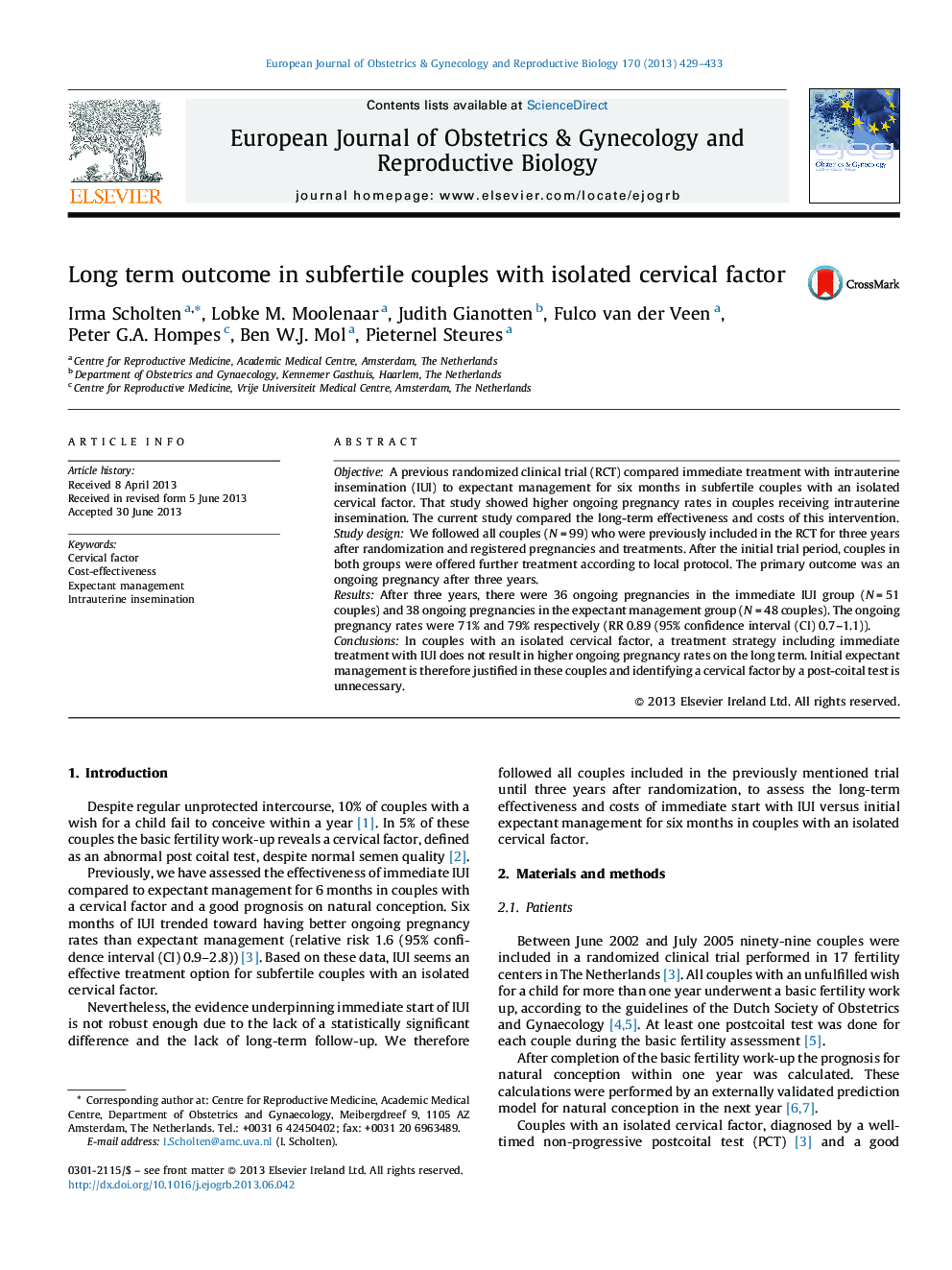| Article ID | Journal | Published Year | Pages | File Type |
|---|---|---|---|---|
| 6174088 | European Journal of Obstetrics & Gynecology and Reproductive Biology | 2013 | 5 Pages |
ObjectiveA previous randomized clinical trial (RCT) compared immediate treatment with intrauterine insemination (IUI) to expectant management for six months in subfertile couples with an isolated cervical factor. That study showed higher ongoing pregnancy rates in couples receiving intrauterine insemination. The current study compared the long-term effectiveness and costs of this intervention.Study designWe followed all couples (NÂ =Â 99) who were previously included in the RCT for three years after randomization and registered pregnancies and treatments. After the initial trial period, couples in both groups were offered further treatment according to local protocol. The primary outcome was an ongoing pregnancy after three years.ResultsAfter three years, there were 36 ongoing pregnancies in the immediate IUI group (NÂ =Â 51 couples) and 38 ongoing pregnancies in the expectant management group (NÂ =Â 48 couples). The ongoing pregnancy rates were 71% and 79% respectively (RR 0.89 (95% confidence interval (CI) 0.7-1.1)).ConclusionsIn couples with an isolated cervical factor, a treatment strategy including immediate treatment with IUI does not result in higher ongoing pregnancy rates on the long term. Initial expectant management is therefore justified in these couples and identifying a cervical factor by a post-coital test is unnecessary.
